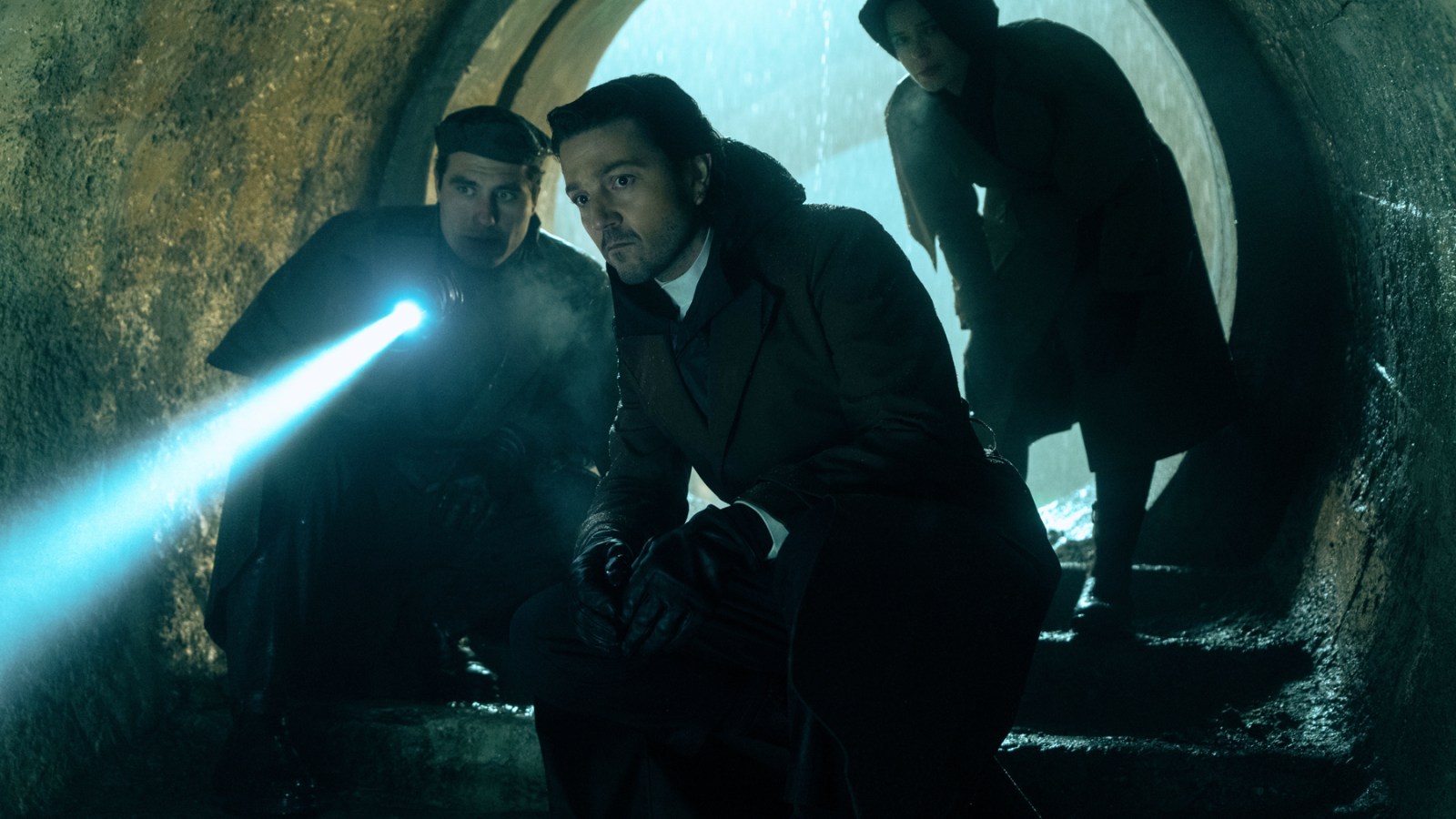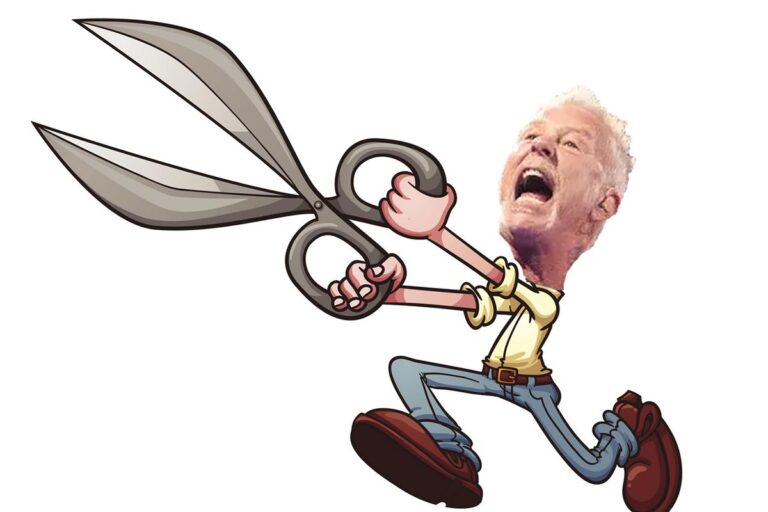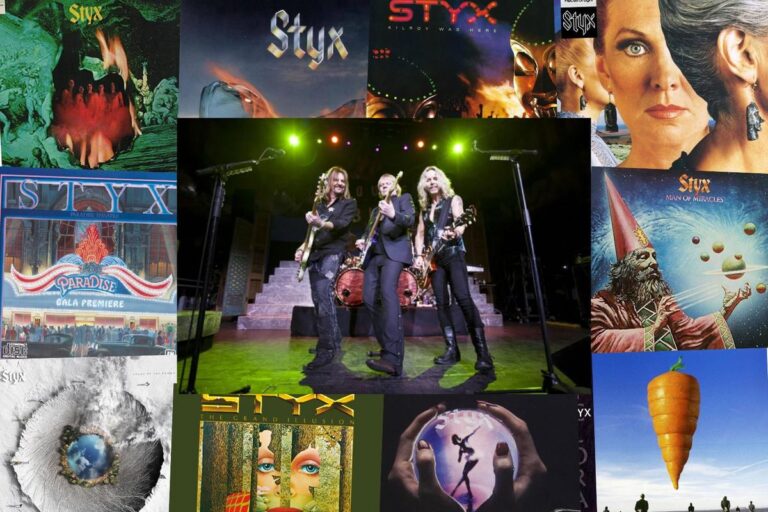After a decade-long run as one of the most layered and tragic characters ever to pilot spaceships in a certain distant galaxy, Diego Luna is finally ready to say goodbye to Cassian Andor. Luna had no idea what he was signing up for when he first popped up as Cassian in 2016’s Rogue One, which ended up spawning the most adult-friendly Star Wars project ever, showrunner Tony Gilroy‘s groundbreaking Disney+ series Andor. With the series’ second and final season debuting April 22 (the streamer will drop three episodes a week for four weeks), Luna reflected on the character’s significance to him, teased some of developments, and more.
How does it feel to be finally done with your longest-ever association with a character?
Besides being a parent, this is the longest I’ve invested in a single thing. It’s been years now since Season One. And I don’t feel I’m done, because I still have to do the voice in Spanish for its last three episodes. And I start on Wednesday the press tour.
I’ve never felt so close to anything so big. It’s a paradox to me. Life as an actor was the exact opposite: The tiniest project was always the most personal. And here there is a strange thing because even though this is a gigantic thing, it feels so personal. I’ve been growing and learning a lot. When I was finding out what kind of parent I was gonna be, I was playing Cassian. When I moved out of Mexico, I was playing Cassian. When I moved back to Mexico, I was playing Cassian. When the pandemic hit, I was playing Cassian. Cassian has been around in very important moments of my life. I am very proud of what we’ve done.
What was it like to shoot whatever your final scene was?
Because the strikes were happening in between, we had to stop. So when it ended, it was a long time after we started. There was a true family feeling. I spent more than five years with these people. So saying goodbye was hardcore. At the end, we were shooting in a studio in Pinewood, and we were doing some cleanup. So the very last two things I shot were by myself in a cockpit, as lonely as it could end — a camera and myself, piloting for the last time.
I was in a gimbal, this machine that actually is like a ride in Disneyland. It’s a machine that moves while you are piloting. So it goes up, down and shakes and crashes. With Rogue One, the first thing I was very shocked and and excited about is the first time I got in a cockpit and had to pilot. So I got a chance to ride for the last time in one of these crazy things that I’ll never get on again. You can only get on these things if you’re shooting Star Wars. And so it was a nice thing — the last moment of my time on a set, I allowed myself to go back to the kid playing on the cockpit, pretending to fly a ship in Star Wars.
And then we had an event where we had a drink. Tony, myself, we were there giving a little speech. We had the opportunity to thank everyone, and then we screened a nice chunk of everything we shot for this second season. We had a party. We did the first season during the worst peak of the pandemic, so there was no opportunity to celebrate. So that last celebration was very intense, and very important for closure.
Your romance with Adria Arjona’s character, Bix, intensifies this season. We know that by the time of Rogue One, Bix is not in Cassian’s life. How did knowledge that affect your approach?
That’s what elevates the stakes of every relationship in this show. If you see it from Cassian’s perspective, you know exactly who you’ve seen in this story is or is not around. And what happens is we find Cassian so committed to the rebellion, willing to sacrifice everything in the mission we see in Rogue One.
I think we take for granted what he says in Rogue One: “I’ve sacrificed everything for the rebellion.” It sounds like just a movie line. Now we know it’s not a movie line. Now we know there were relationships, there was love involved, there was friendship, there was loyalty, there was betrayal. There’s so much that this guy carries when he arrives to Rogue One. And we are gonna explore that.
It’s gonna be quite interesting for audiences who love Rogue One to revisit the movie now after watching Andor. If you love the film, you’re gonna find so many other layers you were not aware of. The relation with Jin in Rogue One, you can read it differently now.
And yes, it is like any revolution. It is very tragic, and this is a story about a revolution coming together. Revolutions are full of loss, full of pain and darkness. The bottom is when you sacrifice everything, because you can’t take it any longer. And we find all of these characters in that situation. So it’s just gonna get more and more complicated and more and more emotionally charged, because every decision is about losing something or not. It’s a very interesting scenario when you know an ending and you start building the backstory. And Rogue One is a very interesting film to write the backstory of, because of how it ends.
One of the things that makes Andor stand out, both as a Star Wars show and as a genre show in general, is the many shades of moral gray in it, which keep getting more complex. How do you think about Cassian’s moral journey?
When we find him at the beginning, he’s in a very cynical journey, with an egocentric perspective of how to solve life. And that starts changing through Season One. And when he meets Luthen, he starts learning a lot from him. But he’s in the constant search of a community, in the constant search of a family. It’s the orphan’s journey. He doesn’t have a problem about executing an order [to kill] if he believes this is for the right reasons, but he cares about people.
Being a migrant and an orphan is always behind his decisions. When he believes he belongs to a community or a group of people or a family, he will do anything to defend that, no matter what. He wouldn’t stop to think if it’s right or wrong, and that’s a big shift we see in the character in Season One.
When we start this season, he’s committed to the people, not yet to the cause. But he’s about his community. He’s about his people. I think that’s what makes him a character you can definitely care for, because it doesn’t matter how wrong sometimes his actions look. He’s always there protecting those he cares about and believes in.
The difference between Luthen and Cassian really plays out this season. Luthen will do anything for the cause. Cassian will do a lot of things, but there are lines he draws more clearly. How did you see that?
Cassian struggles to believe he can be a leader. Luthen probably believes a little too much in his leadership. And this season, Cassian is allowing himself to feel things he has never let himself feel before. Therefore the risk of losing that becomes pretty central in his decisions. And again, this is the beauty of the writing of Tony. If there’s an opportunity to make things more complex, he will go for that, and for Cassian, many things are happening for the first time in this second season, and the struggle to make a choice becomes more and more dramatic.
It’s been revealed that you reunite with K-2SO, the Rogue One droid played by Alan Tudyk, this season.
The beauty of this season to come is that we finish like minutes or seconds before we meet Cassian in Rogue One. Therefore everything needed for Rogue One to happen, you will witness, and obviously that involves K-2SO, and many other characters.
How does it work with Alan on set? He’s in a mo-cap suit, right?
I see his eyes, man. I see his eyes. He’s sitting there. His head is where K-2SO’s head is supposed to be. His face is definitely full of dots and he’s in a very unflattering suit with dots everywhere — very tight, like a wetsuit. But once you break the uncomfortableness of being with someone dressed like that, it flows. Alan is a fantastic performer. He’s giving K-2SO this very dark humor that is very particular because he has no filter, right? This droid is programmed to be honest. And we don’t get to see many honest characters. Therefore, it becomes a very sharp character to be around. And as a performer, Alan is a very generous man. And I think in comedy, that’s the big difference, when someone can play for the team. Alan is like that. So it’s joyful playing with him.
What will you miss most about the character and the experience on this show?
I got to feel very comfortable with the character. I got to understand him profoundly. So it allowed me to explore things that I probably haven’t been able to explore before, to reflect on human behavior in a way I haven’t been able to explore before.
And the whole scenario of science fiction makes it very comfortable to take risks, to go far. It allows you to make bold decisions, and I’m gonna miss that. I’m gonna miss that universe. I’m gonna miss that freedom.
I’m gonna miss also the feeling of being on such a gigantic set with all those tools, and yet with such an intimate story to tell. Somehow that dichotomy, that contrast, I’ve never found before, and I don’t know if I’ll ever find it again, so that is something I am gonna miss. And then the people, the complicity, with Tony, with [exec producer] Sanne [Wohlenberg] with Kathy [Kennedy], with the whole cast. I met truly amazing voices, artists and friends that I am gonna miss.
If they come to you and say, “We’re filming this new Star Wars movie or show set in your time period, and we need Cassian for three scenes,” would you come and play him again? Or do you feel like you’ve closed the book on this character?
No, look, I’m gonna answer the same thing I answered at the end of Rogue One. I’m pleased with everything I’ve done. I’m happy, and I think I’m done. That’s what I said after Rogue One!



